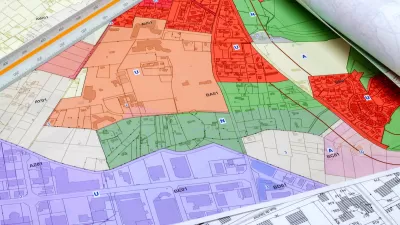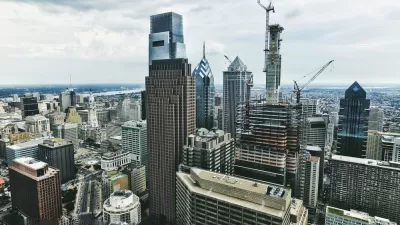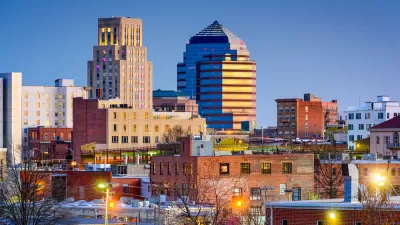When it comes to carbon emissions, dense cities are better for the environment than anything else, says economists Edward L. Glaeser of Harvard and Matthew Kahn of UCLA. And right now we're inhibiting building where we should be encouraging it.
"On a pleasant April day in 1844, Henry David Thoreau-the patron saint of American environmentalism-went for a walk along the Concord River in Massachusetts. With a friend, he built a fire in a pine stump near Fair Haven Pond, apparently to cook a chowder. Unfortunately, there hadn't been much rain lately, the fire soon spread to the surrounding grass, and in the end, over 300 acres of prime woodland burned. Thoreau steadily denied any wrongdoing. "I have set fire to the forest, but I have done no wrong therein, and now it is as if the lightning had done it," he later wrote. The other residents of Concord were less forgiving, taking a reasonably dim view of even inadvertent arson. "It is to be hoped that this unfortunate result of sheer carelessness, will be borne in mind by those who may visit the woods in future for recreation," the Concord Freeman opined.
Thoreau's accident illustrates a point that is both paradoxical and generally true: if you want to be good to the environment, stay away from it. Move to high-rise apartments surrounded by plenty of concrete. Americans who settle in leafy, low-density suburbs will leave a significantly deeper carbon footprint, it turns out, than Americans who live cheek by jowl in urban towers. And a second paradox follows from the first. When environmentalists resist new construction in their dense but environmentally friendly cities, they inadvertently ensure that it will take place somewhere else-somewhere with higher carbon emissions. Much local environmentalism, in short, is bad for the environment."
FULL STORY: Green Cities, Brown Suburbs

Maui's Vacation Rental Debate Turns Ugly
Verbal attacks, misinformation campaigns and fistfights plague a high-stakes debate to convert thousands of vacation rentals into long-term housing.

Planetizen Federal Action Tracker
A weekly monitor of how Trump’s orders and actions are impacting planners and planning in America.

San Francisco Suspends Traffic Calming Amidst Record Deaths
Citing “a challenging fiscal landscape,” the city will cease the program on the heels of 42 traffic deaths, including 24 pedestrians.

Defunct Pittsburgh Power Plant to Become Residential Tower
A decommissioned steam heat plant will be redeveloped into almost 100 affordable housing units.

Trump Prompts Restructuring of Transportation Research Board in “Unprecedented Overreach”
The TRB has eliminated more than half of its committees including those focused on climate, equity, and cities.

Amtrak Rolls Out New Orleans to Alabama “Mardi Gras” Train
The new service will operate morning and evening departures between Mobile and New Orleans.
Urban Design for Planners 1: Software Tools
This six-course series explores essential urban design concepts using open source software and equips planners with the tools they need to participate fully in the urban design process.
Planning for Universal Design
Learn the tools for implementing Universal Design in planning regulations.
Heyer Gruel & Associates PA
JM Goldson LLC
Custer County Colorado
City of Camden Redevelopment Agency
City of Astoria
Transportation Research & Education Center (TREC) at Portland State University
Jefferson Parish Government
Camden Redevelopment Agency
City of Claremont





























